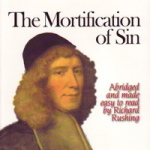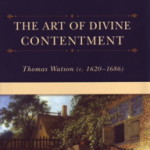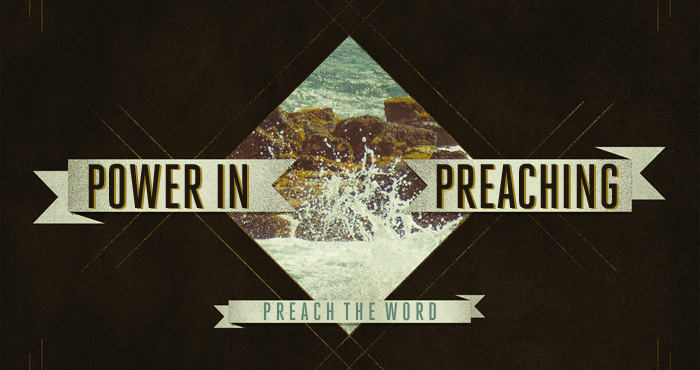“The preacher’s business is to take what is given him in the Scriptures, as it is given to him, and to endeavor to imprint it on the souls of men. All else is God’s work.” – R.L. Dabney, Evangelical Eloquence, 37.
Monthly Archives: January 2015
Old Hymns Made New
I’m surely biased since he’s a good friend, but few modern hymn writers are as good as Matt Boswell. In addition to his many originals Bos has rearranged some old hymns well worth your attention. Here are two you should know about.
The first is “God the Spirit,” a new melodic arrangement of Samuel Stone’s lyrics from 1866. Songs have instructive power and Stone’s hymn is a crash course in pneumatology. The second redone hymn is Henry Allon’s “In the Name of God the Father,” an eloquent tune on the Lord’s Supper. The language on this one is earnest, poetic, and rich. It would be a great preparatory song for the church’s gathering at Jesus’ Table.
How many songs does your church have that explicitly and melodically extol the doctrines of the Holy Spirit and the Lord’s Supper? However many you have, I’m sure you’d love to have more! So check out these two old hymns made new.
God the Spirit
Holy fount of inspiration
By whose gift the great of old
Spoke the word of revelation
Marvelous and manifold
Chorus
God the Spirit we adore Thee,
In the Triune Godhead One
One in love and power and glory
With the Father and the Son
Author of the new creation,
Giver of the second birth
May thy ceaseless renovation
Cleanse our souls from stains of earth
When we wander Lord direct us,
Keep us in the Master’s way
Let they strong swift sword protect us
Warring in the evil day
Shall the church now faint or fear
When the Comforter is near
In the Name of God the Father
In the Name of God the Father,
In the Name of God the Son,
In the Name of God the Spirit,
One in Three, and Three in One;
In the Name which highest Angels
Speak not ere they veil their face,
Crying, Holy, Holy, Holy,”
Come we to this sacred place.
Lo, in wondrous condescension,
Jesus seeks His altar-throne;
Though in lowly symbols hidden,
Faith and love His Presence own.
When the Lord His temple visits,
Let the listening earth be still;
May the Spirit’s sweet indwelling
Each believing heart fulfill.
Here, in Figure represented,
See the Passion once again;
Here behold the Lamb most Holy,
As for our redemption slain;
Here the Saviour’s Body broken,
Here the Blood which Jesus shed,
Now the offer of communion,
Into lasting joy be led.
Here shall highest praise be offered,
Here shall meekest prayer be poured,
Here, with body, soul, and spirit,
God Incarnate be adored.
Holy Jesus, for Thy coming
May Thy love our hearts prepare;
Thine we pray would have them wholly,
Enter, Lord, and tarry there.
A Ministry of Growing Power
“A ministry of growing power must be one of growing experience.
“The soul must be in touch with God and enjoy golden hours of fresh revelation. The truth must come to the minister as the satisfaction of his own needs and the answer to his own perplexities; and he must be able to use the language of religion, not as the nearest equivalent he can find for that which he believes others to be passing through, but as the exact equivalent of that which he has passed through himself. There are many rules for praying in public, and a competent minister will not neglect them; but there is one rule worth all the rest put together, and it is this: Be a man of prayer yourself; and then the congregation will feel, as you are entering an accustomed presence and speaking to a well-known Friend.
“There are arts of study by which the contents of the Bible can be made available for the edification of others; but this is the best rule: Study God’s Word diligently for your own edification; and then, when it has become more to you than your necessary food and sweeter than honey or the honey-comb, it will be impossible for you to speak of it to others without a glow passing into your words which will betray the delight with which it has inspired yourself.”
– James Stalker, The Preacher and His Models: The Yale Lectures on Preaching, 53-54. HT: Murray Capill.
Train Your Soul for Joy
My pathway into the Puritans began, unexpectedly, in the spring of 2007 when I read George Marsden’s Jonathan Edwards: A Life. I found Edwards’ passion for God’s glory and personal holiness captivating. What fascinated me most about his spirituality was his heavenly-mindedness. Thinking Edwards was a “Puritan” (he’s technically isn’t) I googled, “Puritans and heavenly mindedness.” Over 800,000 hits came back and my life has never been the same.
I came across J.I. Packer’s A Quest for Godliness and a bunch of works by some guy named Joel Beeke. I devoured these secondary sources with an appetite bordering on gluttonous. But I had yet to really get into the original Puritan works.
Ad Fontes!
That all changed on Christmas Day 2008 when generous family members ushered in, what I’ve come to call, “The Winter of Puritan Paperbacks.” Banner of Truth’s wonderful reprints opened my eyes to new vistas of doxological approaches to theology. From there, I purchased the complete works of Boston, Brooks, Bunyan, Flavel, Goodwin, Sibbes, and Swinnock. It seemed as though I was always reading a Puritan work; I was squarely in their grip and there I remain.
In the Puritans I find reverent affection for our great God.
In the Puritans I find doctrinal precision coupled with experiential application.
In the Puritans I find a devotion to worship God in all of life.
In the Puritans I find a passion to be with Christ’s church in worship.
In the Puritans I find a peculiar strength for suffering.
In the Puritans I find a delightful submission to God’s providence.
In short, the Puritans train my soul for joy. I believe they can do the same for you.
A Very Good Place to Start
Many Christians – and pastors – today live with spurious assumptions about the Puritans: “They are killjoys!” “They are impossible to read!” “They are crazy, introspective legalists!” There are, to be sure, some verbose, legalistic joy-crushing Puritans, but those men are an aberration within the movement. The overwhelming majority are “Doctors of the Soul” without peer in church history.
The only way you’ll know if I’m right or wrong is to step into the Puritans waters (come on in, the water’s great!). Here are a few works that capture the Puritan ethos and will likely cause you to swim deeper into this ocean of spiritual goodness.
 The Mortification of Sin by John Owen. Jerry Bridges said, “John Owen’s treatises on Indwelling Sin in Believers and The Mortification of Sin are, in my opinion, the most helpful writings on personal holiness ever written.” JI Packer once wrote, “I owe more to John Owen than to any other theologian, ancient or modern, and I owe more to this little book (The Mortification of Sin) than to anything else he wrote.”
The Mortification of Sin by John Owen. Jerry Bridges said, “John Owen’s treatises on Indwelling Sin in Believers and The Mortification of Sin are, in my opinion, the most helpful writings on personal holiness ever written.” JI Packer once wrote, “I owe more to John Owen than to any other theologian, ancient or modern, and I owe more to this little book (The Mortification of Sin) than to anything else he wrote.”
No one, outside of the apostles, peered so deeply into the human heart and the glory of Christ as this Prince of Puritans. Owen is thus unusually able to steel our gaze against the heart-fortresses of sin. His application of truth to the believer’s sin-slaying work is, at certain points, breathtaking. In the fall of 2013 I had a few dozen men in my church read The Mortification of Sin and a large handful said something like, “This is one of the most useful books I’ve ever read!” If you read one book the rest of this year, make it Owen’s classic. I promise your soul will say, “Thank you.”
 Precious Remedies Against Satan’s Devices by Thomas Brooks. One area where the Puritans uniquely excel is on the always pressing topic of spiritual warfare. When it comes to Satan’s schemes, Brooks knows best. I don’t think Banner of Truth is exaggerating when they say, “Brooks treated the seductive influence and terrible power of Satan in a way greatly more full and suggestive than in the literature of the present day.” Brooks takes on 38 (!) different favored devices of the Worm and gives specific remedies for each one. His insight into Satan’s ways are stunning. The final chapter, “Ten Special Rules Against Satan’s Devices” is pure gold. Spurgeon had a particular affection for Brooks, saying,
Precious Remedies Against Satan’s Devices by Thomas Brooks. One area where the Puritans uniquely excel is on the always pressing topic of spiritual warfare. When it comes to Satan’s schemes, Brooks knows best. I don’t think Banner of Truth is exaggerating when they say, “Brooks treated the seductive influence and terrible power of Satan in a way greatly more full and suggestive than in the literature of the present day.” Brooks takes on 38 (!) different favored devices of the Worm and gives specific remedies for each one. His insight into Satan’s ways are stunning. The final chapter, “Ten Special Rules Against Satan’s Devices” is pure gold. Spurgeon had a particular affection for Brooks, saying,
Had Brooks been a worldly man, his writings would have been most valuable; but since he was an eminent Christian, they are doubly so. He had the eagle eye of faith, as well as the eagle wing of imagination. He saw similes, metaphors, and allegories everywhere; but they were all consecrated to his Master’s service.
 The Art of Divine Contentment by Thomas Watson. If there was an award for “The Most Readable Puritan” its recipient would surely be Thomas Watson. Joel Beeke says Watson stands out from all the rest because of his “depth of doctrine, clarity of expression, warmth of spirituality, love of application, and gift of illustration.” You really can’t go wrong with any of Watson’s works (All Things for Good and The Doctrine of Repentance are excellent), but I suggest The Art of Divine Contentment because the subject is a perennial struggle for every Christian. Launching off from Philippians 4:11, Watson writes, “For my part, I know not any ornament in religion that doth more bespangle a Christian, or glitter in the eye of God and man, than this of contentment. . . . If there is a blessed life before we come to heaven, it is the contented life.”
The Art of Divine Contentment by Thomas Watson. If there was an award for “The Most Readable Puritan” its recipient would surely be Thomas Watson. Joel Beeke says Watson stands out from all the rest because of his “depth of doctrine, clarity of expression, warmth of spirituality, love of application, and gift of illustration.” You really can’t go wrong with any of Watson’s works (All Things for Good and The Doctrine of Repentance are excellent), but I suggest The Art of Divine Contentment because the subject is a perennial struggle for every Christian. Launching off from Philippians 4:11, Watson writes, “For my part, I know not any ornament in religion that doth more bespangle a Christian, or glitter in the eye of God and man, than this of contentment. . . . If there is a blessed life before we come to heaven, it is the contented life.”
Tolle lege!
Forceful Preaching
I’m sure we can all remember a time when we heard God’s word preached with peculiar power. If you recall such a time, here’s my question, “What about that sermon was particularly powerful?” You see, it’s one thing to say a sermon had power and it’s another thing to know why it had power.
Understanding any powerful sermon is utterly dependent on the sovereign Spirit opening hearts, I want to think about a few ordinary conduits of sermonic power.
Like a solar panel soaks up energy, we want our sermons to soak up – to varying degrees – the power in each of these forces. In my mind there are at least four power sources in every sermon.
4 Ordinary Forces in Preaching
The preacher’s personality. Of all the forces I’m going to mention this one seems to be the most dangerous. Is it wise to build a preaching ministry on a compelling personality? I hope you’d say, “No.” Yes, any sermon is going to have undeniable elements of personality; as Phillip Brooks’ famously said, “Preaching is truth through personality.” Yet, if the forceful gales in our sermons depend on the leveraging of our personality we’ve missed something. I know some who think personality should be turned off in preaching and others who say, “Use it to the glory of God!” It seems better to treat personality as something like cilantro (or whatever ingredient you think is best). When cooking Latin fare cilantro is often needed to produce the right taste, but too much of it derails the dish. So too is it with personality in preaching.
The preacher’s rhetoric. The study of rhetoric has fallen hard in our day. A quick perusal of Twitter feeds and Facebook statuses show just how far we’ve gone. I’m not thinking here of rhetoric being synonymous with eloquence. Paul rung the death knell on sophistic eloquence in 1 Corinthians 2 when he said, “And I, when I came to you, brothers, did not come proclaiming to you the testimony of God with lofty speech or wisdom. For I decided to know nothing among you except Jesus Christ and him crucified.” If that’s what you associate with rhetoric, crucify that notion.
What I have in mind is other Pauline rhetorical realities, such as, “Therefore, knowing the fear of the Lord, we persuade others.” Or his request for the Colossians to pray “that I may make it clear, which is how I ought to speak.” Our sermons needs persuasive clarity; that’s the biblical ideal of rhetoric. We must work hard with language and logic so that our sentences burn with simplicity. We don’t want sermons that wander in their argument or come with wimpy in coherence. Wise rhetoric keeps us from babbling and can function as a springboard unto forceful preaching.
Balance all the above sentiments, however, with what else Paul said in 1 Corinthians 2, “I was with you in weakness and in fear and much trembling, and my speech and my message were not in plausible words of wisdom, but in demonstration of the Spirit and of power, so that your faith might not rest in the wisdom of men but in the power of God.”
The preacher’s godliness. Now here’s something we all need in our preaching: sermons which are the overflow of living communion with God. I can think of numerous preachers whose communion with Christ gives their sermons an unusual sense of living energy. When they ascend to the sacred desk they did so as men just come from the mountain of God. These men glow with the truth and of Jesus, and that glow radiates into their hearers. You feel as though you must listen for this is a “man of God.”
The exhortation here is to strive for that holiness without which no one will see the Lord, so our sermons will have a saltiness about them. Keeping a close watch on ourselves and the teaching will save us and our hearers. Get in the spiritual weight room and train yourself for godliness. Then, with the Spirit’s illuminating help, your sermons will really sting and sing.
The preacher’s passage. You may notice I am operating in descending order of importance. The preacher’s godliness is the irrefutable covert reality in powerful preaching. The only real overt reality in a strong sermon is the degree to which the preacher sticks to inspired Scripture. The pastor’s words are not breathed out by God (in the technical sense of inspiration), but his text is. And those words are useful for molding the congregation in Jesus’ image. Only His words are “living and active, sharper than any two-edged sword, piercing to the division of soul and of spirit, of joints and of marrow, and discerning the thoughts and intentions of the heart.” Saturate your sermon with His language more than your own.
The question then is, “How faithful is your sermon to your passage?” How you answer that question has a direct correlation to how powerful you sermon will be. Let’s long for and encourage plain preaching which clings to the supreme power of God’s word. The personality, rhetoric, and holiness of a preacher cannot – in and of themselves – do anything, not least of which is be an unquenchable source of power. But God’s word is indeed an unending power plant for preachers. Will you treat it as such?
All in Due Proportion
Use your personality wisely and humbly.
Pursue precision and concision in rhetoric ruthlessly.
Cultivate communion with God joyfully.
Root your sermon in God’s word expectantly.
And then preach with power.
Humility & Honesty Needed
— This post is adapted from my recent sermon, “The Light of God,” on 1 John 1:5-10 —
In sixth grade a few friends and I built a rather large fort in a forest near our neighborhood. With all the ignorant imagination of young men we decided one day to build a fire for our forest castle. (It’s an amazing grace of God we never set the entire forest ablaze.) Early on we were quite terrible at getting a fire going, but that all changed one day when a friend showed up with a large white can labeled, “Ignition Fluid.” And so if you every came to our fortress in the winter after that day you’d find a blazing furnace to warm your bones.
Just like certain substances have unusual power in accelerating the growth of a fire, some elements have special force in fueling the light of God in every church’s fellowship. 1 John 1:5-10 says a fellowship of light is a fellowship of holiness. Let’s simply meditate on the two fuels for holiness – the fire of God – I find in this text.
2 Fuels for the Light of Holiness
The fuel of humility. What we see throughout 1 John is that the false teachers were pursuing and perpetuating a spiritual elitism, and their pride was destroying the church. May God protect us from such inflated views of our personal holiness. False spirituality (“I’m a Christian, but I walk in constant unrepentant sin”; “I’m a Christian who doesn’t struggle with sin at all”) fractures congregations. It takes great humility to walk earnestly and joyfully with people of different perspectives and preferences. If we earnestly and eagerly situate ourselves in God’s light and gospel, we will be in the fertile soil for humility to grow in our midst – and the light of holiness to shine.
The fuel of honesty. This is clearly assumed within the culture of confession John advocates (cf. 1:9). God’s light reveals our sin; we cannot hide from Him. We reveal our honesty with Him by confessing our sin to Him. Honest confession to God and one another brings holy cleansing. A joyful fellowship is one free in the joy of Christ; free from the burdens and stains of sin. Oh, may Spirit-wrought honesty perpetuate our lives so that we may together live in the light of God’s glory and grace.
God is light and so His people must walk in the light. Humble and honesty are necessary for a church to shine.
Recent Reads
I love to read. By God’s grace I am a pretty fast reader; I usually read a couple books each week. I find it helpful to summarize my thoughts on each book and I offer those thoughts in the hope that you will be encouraged to either read or pass over the given title.
 The Heart is the Target: Preaching Practical Application from Every Text by Murray Capill. There are relatively few books in the homiletical market exclusively concerned with application in sermons. The one I most often see referenced is Dan Doriani’s Putting Truth to Work, but for a variety of reasons his work feels dated. Bursting into the fray is an Aussie you’ve probably never heard of: Murray Capill. Capill is principal of Reformed Theological College in Geelong, Australia and he’s given us a masterstroke in The Heart is the Target. I generally judge preaching books not merely on their usefulness, but on if they stir fresh desire for the work. At almost every turn Capill made me want to put down his book, take up The Book, and go preach.
The Heart is the Target: Preaching Practical Application from Every Text by Murray Capill. There are relatively few books in the homiletical market exclusively concerned with application in sermons. The one I most often see referenced is Dan Doriani’s Putting Truth to Work, but for a variety of reasons his work feels dated. Bursting into the fray is an Aussie you’ve probably never heard of: Murray Capill. Capill is principal of Reformed Theological College in Geelong, Australia and he’s given us a masterstroke in The Heart is the Target. I generally judge preaching books not merely on their usefulness, but on if they stir fresh desire for the work. At almost every turn Capill made me want to put down his book, take up The Book, and go preach.
Capill, for my mind, gets just about everything right. I can’t see a pastor picking this up without it changing something in his preparation and delivery of God’s word. I hope The Heart is the Target gets the widest audience possible. Grab a copy today and let Capill sharpen your skills with the Spirit’s sword.
 The Cross and Christian Ministry: Leadership Lessons from 1 Corinthians by DA Carson. On Sunday I grabbed Carson’s famous book on the gospel ministry off a shelf in my study and was shocked to find I hadn’t read it yet! I guess it was the Spirit’s saying, “Tolle lege.” The work is simply enough: Carson walks through various passages in 1 Corinthians to show how the cross relates to preaching, the Holy Spirit, factionalism, servant-leadership, and forming believers into “world Christians.” The book is more a commentary on 1 Corinthians than 1 Corinthians applied to pastoral ministry. For some that will be a good thing, but for others it may be somewhat disappointing.
The Cross and Christian Ministry: Leadership Lessons from 1 Corinthians by DA Carson. On Sunday I grabbed Carson’s famous book on the gospel ministry off a shelf in my study and was shocked to find I hadn’t read it yet! I guess it was the Spirit’s saying, “Tolle lege.” The work is simply enough: Carson walks through various passages in 1 Corinthians to show how the cross relates to preaching, the Holy Spirit, factionalism, servant-leadership, and forming believers into “world Christians.” The book is more a commentary on 1 Corinthians than 1 Corinthians applied to pastoral ministry. For some that will be a good thing, but for others it may be somewhat disappointing.
 A Spy Among Friends: Kim Philby and the Great Betrayal by Ben Macintyre. Studying Cold War espionage has long been a favorite hobby of mine. No Cold War spy was more prolific and destructive than Kim Philby, a Soviet mole in MI6 who stole secrets and sabotaged operations for over two decades. Macintyre is the perfect author for this tale; he has perfected the art of narrative espionage-history in recent years. His main contribution to “Philby Cottage Industry” is his recounting the traitor’s life through the lens of friendship. Particularly his friendship with two spy masters and supposed allies: Nicholas Elliot of MI6 and the legendary mystery man of the CIA, James Jesus Angleton. A Spy Among Friends is Macintyre’s best book to date, I simply could not put it down.
A Spy Among Friends: Kim Philby and the Great Betrayal by Ben Macintyre. Studying Cold War espionage has long been a favorite hobby of mine. No Cold War spy was more prolific and destructive than Kim Philby, a Soviet mole in MI6 who stole secrets and sabotaged operations for over two decades. Macintyre is the perfect author for this tale; he has perfected the art of narrative espionage-history in recent years. His main contribution to “Philby Cottage Industry” is his recounting the traitor’s life through the lens of friendship. Particularly his friendship with two spy masters and supposed allies: Nicholas Elliot of MI6 and the legendary mystery man of the CIA, James Jesus Angleton. A Spy Among Friends is Macintyre’s best book to date, I simply could not put it down.
 Red Sparrow by Jason Matthews. Matthews spent thirty-three in the CIA and upon retirement he did what many former intelligence officers have done: write a spy novel. Yet, Matthews is unlike those who’ve come before. He’s actually really good a telling a realistic spy tale. The Company itself said, “The amount of tradecraft, particularly surveillance and countersurveillance, will make the in-house reader wonder how he got all this past the Publications Review Board.” The novel isn’t perfect though. The pacing is unbalanced at several points, the content unnecessarily lascivious (especially early on), and his depiction of Russia one dimensional. Nevertheless, Red Sparrow is a gripping portrait of modern day espionage and I hope Matthews is no one-hit wonder.
Red Sparrow by Jason Matthews. Matthews spent thirty-three in the CIA and upon retirement he did what many former intelligence officers have done: write a spy novel. Yet, Matthews is unlike those who’ve come before. He’s actually really good a telling a realistic spy tale. The Company itself said, “The amount of tradecraft, particularly surveillance and countersurveillance, will make the in-house reader wonder how he got all this past the Publications Review Board.” The novel isn’t perfect though. The pacing is unbalanced at several points, the content unnecessarily lascivious (especially early on), and his depiction of Russia one dimensional. Nevertheless, Red Sparrow is a gripping portrait of modern day espionage and I hope Matthews is no one-hit wonder.
 The Two Deaths of Daniel Hayes by Marcus Sakey. I was completely taken with Sakey’s “The Brilliance Saga,” but do his other works match the magic? To answer that question I picked up The Two Deaths of Daniel Hayes, Sakey’s last publication before all the brilliance arrived. Gillian Flynn calls the story of Hayes, “A brainy, twisty, sometimes twisted mystery.” I did find it a bit twisted, but – on the whole – it’s terrifically twisty. At several points the plot line shifts rather dramatically and the turns are mostly believable, if somewhat conventional. The more I read Sakey the more I find him to be some sort of Connelly/Flynn blend. And that mixture will win many a fan.
The Two Deaths of Daniel Hayes by Marcus Sakey. I was completely taken with Sakey’s “The Brilliance Saga,” but do his other works match the magic? To answer that question I picked up The Two Deaths of Daniel Hayes, Sakey’s last publication before all the brilliance arrived. Gillian Flynn calls the story of Hayes, “A brainy, twisty, sometimes twisted mystery.” I did find it a bit twisted, but – on the whole – it’s terrifically twisty. At several points the plot line shifts rather dramatically and the turns are mostly believable, if somewhat conventional. The more I read Sakey the more I find him to be some sort of Connelly/Flynn blend. And that mixture will win many a fan.
Click here to find other entries in the Recent Reads series.
A Motley Crew
The gang over at Mortification of Spin keeps churning out valuable content for ordinary pastors.
Their podcast is full of witty banter and sober analysis on the current evangelical landscape. You won’t always agree with their conclusions, but at least you’ll never have to doubt which side of the pastoral/theological fence they love to live.
You’ve got the Housewife Theologian, the cranky English historian, and a Presbyterian who recently converted from being a Baptist. Sounds quite fun, doesn’t it? My wife even loves listening to the MOS episodes, but I don’t yet know if it’s because of Amy’s presence or merely because Trueman has “a cool accent.”
If you haven’t tuned in before here’s your golden opportunity. Westminster Theological Seminary recently invited the venerable Kent Hughes on campus for the 2014 Institute on Biblical Preaching. The MOS team led the panel discussion with Dr. Hughes and my, my, what wise fun ensued.
Watch how this quartet of theological know-how takes on questions like: “How can I get in the pulpit when I am so sinful?” and, “Now that you’ve reached the pinnacle of evangelical celebrity, what’s the view like from the top?” and a Spin favorite: “Where would you draw the line of being vulnerable from the pulpit in sharing your own personal sin?”
Questions
– What is the secret of staying fresh after preaching to the same congregation after so many years? (4:08)
– How do you preach to a congregation with eight-year-old and eighty-year-old? (7:26)
– How do you preach through pain and sorrow? (11:10)
– Does pain, sorrow, and heartbreak make a pastor a better preacher? (14:46)
– How does friendship function in pastoral ministry? (16:07)
– Do we, as pastors, tell our wives everything in ministry? (18:56)
– How do you cultivate humility? (24:09)
– How do you strike the balance between powerful rhetoric and the power of the cross in preaching? (27:10)
– Do I always have to preach Christ in a sermon? Even from Proverbs? (31:00)
– Outside of ministerial positions where are Christians, training in theology, needed most? (32:55)
– Would you each discuss how you do family worship in your home? (36:06)
– Are can pastors cultivate a love for the church in their children? (38:42)
– Now that you – MOS team – have reached the pinnacle of celebrity evangelicalism, what’s the view like from the top? Will you sign my Bible? (41:49)
– How can I get in the pulpit when I am so sinful? (43:48)
– Should a pastor share his personal struggles and sins from the pulpit? (49:10)
– Do you think a layman can preach? (51:22)
– Should churches only serve grape juice for the Lord’s Supper? (56:17)
– Should a catechism be preached every Lord’s Day? (59:49)
– If we don’t take the time to pray and meditate on the passage we’ll preach, can we say the Holy Spirit accompanies our preaching? (1:03:32)
– How do Luther and Calvin differ in their preaching? (105:30)
– How should we think about unction in preaching? (1:10:08)
– What’s the most difficult text you’ve had to preach through Dr. Hughes? (1:13:56)
– What’s the role for women on the mission field who have M.Div. degrees? (1:15:09)
A Wednesday of Weeping
Today is one of those days when tears of sorrow cover a pastor’s soul.
Back in November I mentioned how some members at IDC – and close family friends – found out their third child, a thirteen-week-old infant, had anencephaly. It’s a serious birth defect that meant the baby, if it made it to term, would not survive many hours out of the womb.
Yesterday they found out little Eli didn’t even make it to term. He died in the womb at twenty-four weeks.
And so this Wednesday is one of weeping for our church body.
Yet we do not weep from fear. We weep with faith, for death will be no more.
Then shall come to pass the saying that is written:
“Death is swallowed up in victory.”
“O death, where is your victory?
O death, where is your sting?”
Conditional Preaching
The best preachers are physicians of the heart. They have peculiar wisdom in diagnosing the soul’s ailment and prescribing the vital treatment. I long to be like that.
Spiritual Discrimination
The great soul doctors know many spiritual conditions are present in every congregation. They therefore think about different categories of hearers. William Perkins had four categories: 1) the hard heart, 2) the seeker, 3) the converted, and 4) the backslider. Charles Bridges, in his classic The Christian Ministry, was even more detailed. His first category consists of “the infidel,” a hearer impatient with all moral restraint and lives in defiance of God’s rule. Second, there are ignorant and careless listeners. These people simply don’t know or understand the gospel. The self-righteous soul occupies Bridges’ third category. Then comes the “false professor,” one who has been persuaded of the gospel, yet doesn’t embrace it in his life. Such a person, Bridges says, has “no dread of self-deception, no acquaintance with his own sinfulness, no assault from Satan, because there is no real exercise of grace, or incentive to diligence.” To these categories the old Englishmen adds the young Christian, the unestablished Christian, the backslider, and the confirmed and consistent Christian.
If you think Mr. Bridges is specific, then you ought to run down an old Tim Keller article from the Journal of Biblical Counseling titled, “A Model for Preaching (Part 2).” There the Manhattan Man offers a list of “Possible Spiritual Conditions in an Audience.” He has non-Christians, conscious unbelievers, non-church nominal Christians, church nominal Christians, awakened sinners, and apostates. He then categorizes Christians into seven groups: new believers, mature and growing Christians, the afflicted, the tempted, immature believers, the depressed, and the backslidden. And, believe it or not, he has further breakdowns in each category. So “The Afflicted” category includes the physically afflicted, the bereaved, the lonely, the persecuted/abused, the poor, and the deserted.
No wonder Keller seems to wield unusual and pointed force in his heart-searching application.
Do you have a method for wisely discriminating between hearers when you preach? If not, here’s another one that might be of great help.
A Memorable Method
Murray Capill’s excellent book The Heart is the Target: Preaching Practical Application from Every Text offers a wonderful “Spiritual Conditions Grid” for preaching to different kinds of hearers. It’s simultaneously simple and searching.
1) Those who are not going well and don’t know it. Capill says, “This is a dangerous place to be, and can be the condition of both believers and unbelievers.” These people are deceived into believing they are fine, but they don’t realize they are wretched, poor, blind, and naked (cf. Rev. 3:17). They may be smug in their unbelief, complacent in their immature faith, or wayward in their pursuit of God. Either way, they are those the preacher must shake up spiritually and call to repentance.
2) Those who are not going well and know it. Many people – Christian and non-Christian alike – will come to hear a sermon knowing their life is a spiritual train wreck. Maybe they are consciously backsliding into sin and temptation. They might truly believe, but long for God to help stifling, present unbelief. Or it may just be that they are quite young in the faith and need spiritual aid. Some unbelievers will come to the church’s gathered worship knowing they are apart from God, under His wrath, but don’t know what to do about it. Will you help them? Will you provide wise counsel and direction for their soul?
3) Those who are going well and don’t know it. We all have these, don’t we? The tenderhearted souls who constantly feel inadequate. The sensitive conscience who is inclined to undue worry, guilt, and condemnation. Capill writes, “These people need encouragement and consolation. They need the load to be lightened.” Plead with them to come to Christ’s rest and make sure you don’t tie a Pharisaically heavy load on their necks.
4) Those who are going well and know it. These are people who believe the gospel, love the Lord, and warmly respond to God’s Word. They are humble, hopeful, and grateful children of God. They come to feast upon the red meat of Scripture, so we must serve an exquisite meal of encouragement and doctrine for their pilgrim way.
Hit the Target
The heart is the target. Let us, with the Spirit’s help, drive the arrow of God’s truth home into the souls of our people. If the arrow needs to be a flame of fire, then light it up. If it needs to be a calm balm of comfort, let it soar. Know the diversity of conditions ordinarily present in your flock. Do the hard work of putting the text into their respective conditions and you’ll find God’s truth stinging and singing.






